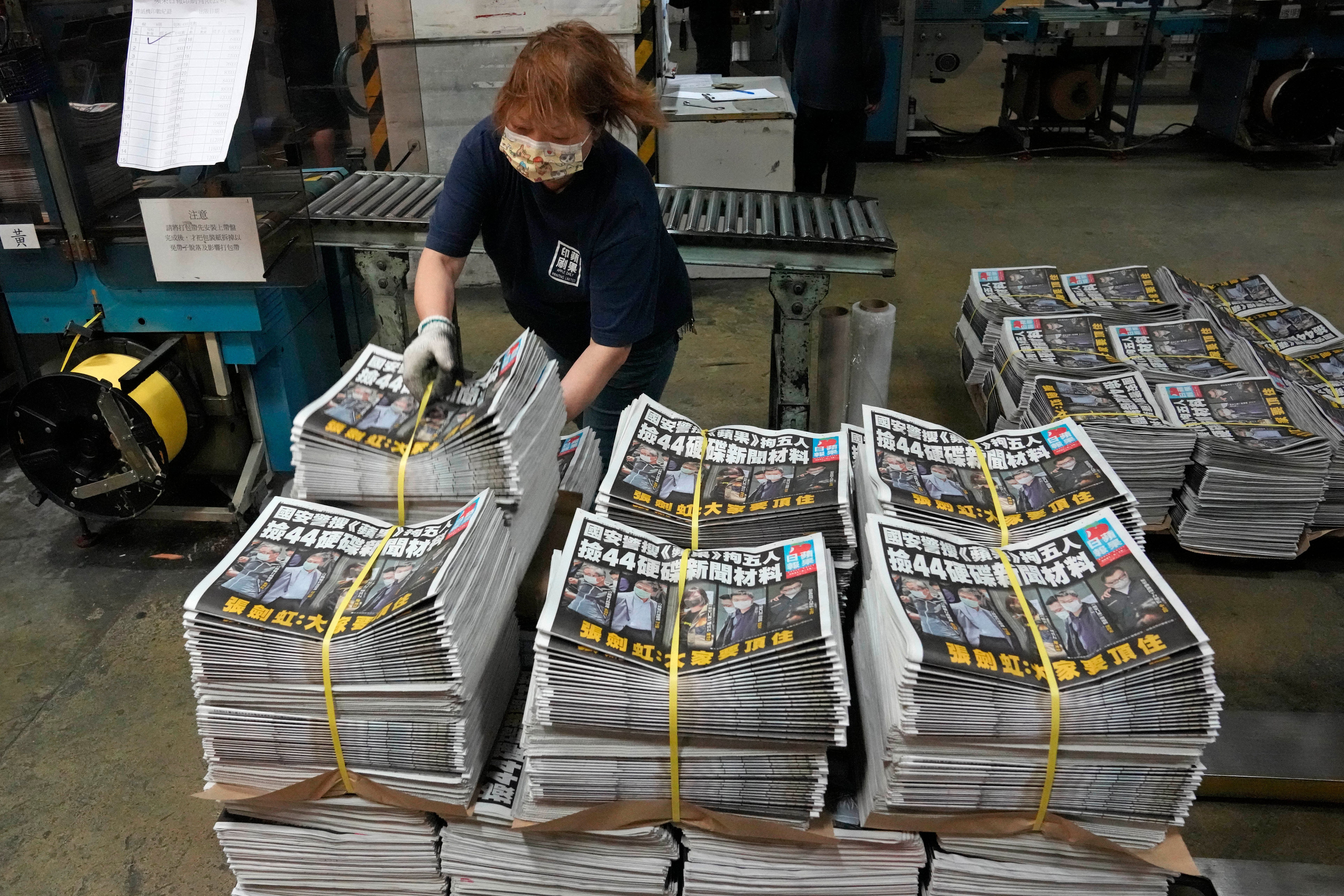Hong Kong court holds first hearing for Apple Daily execs
The top editor of Hong Kong’s Apple Daily pro-democracy newspaper and the head of its parent company have been brought to court for their first hearing since their arrest under the city’s national security law

Your support helps us to tell the story
From reproductive rights to climate change to Big Tech, The Independent is on the ground when the story is developing. Whether it's investigating the financials of Elon Musk's pro-Trump PAC or producing our latest documentary, 'The A Word', which shines a light on the American women fighting for reproductive rights, we know how important it is to parse out the facts from the messaging.
At such a critical moment in US history, we need reporters on the ground. Your donation allows us to keep sending journalists to speak to both sides of the story.
The Independent is trusted by Americans across the entire political spectrum. And unlike many other quality news outlets, we choose not to lock Americans out of our reporting and analysis with paywalls. We believe quality journalism should be available to everyone, paid for by those who can afford it.
Your support makes all the difference.The top editor of Hong Kong s Apple Daily pro-democracy newspaper and the head of its parent company were brought to a courthouse Saturday for their first hearing since their arrest under the city's national security law.
Ryan Law, the chief editor, and Cheung Kim-hung, the CEO of Next Digital, arrived in an unmarked white van with covered windows. They have been charged with collusion with a foreign country to endanger national security in a case widely seen as an attack on press freedom in the semi-autonomous Chinese territory.
Three others also arrested Thursday — two Apple Daily senior editors and another executive — have not been charged yet and were released on bail late Friday pending further investigation.
The Apple Daily has long been one of the most outspoken defenders of civil liberties in Hong Kong. It supported massive protests demanding more democracy in 2019 and has criticized the subsequent crackdown, including the enactment of a national security law last year.
The central government in Beijing has defended the legislation and the crackdown on opposition voices as necessary to restore order and stability. The 2019 protests that challenged Beijing's rule often started as peaceful marches during the day but turned into violent clashes between hard-core demonstrators and police at night.
Apple Daily founder Jimmy Lai is currently serving a 20-month prison sentence after being convicted of playing a role in unauthorized assemblies — rallies and marches that had not received police approval — during the 2019 protests. He has also been charged under the national security law.
The latest arrests mark the first time journalists have been targeted under the new law, except for a freelancer who was arrested for pro-democracy activities. Hundreds of police and security agents who raided Apple Daily's office on Thursday also seized 44 hard drives, and authorities froze $2.3 million of its assets.
Police said the arrests were based on more than 30 articles that had appeared in the Apple Daily since the security law took effect and that had called for international sanctions against China and Hong Kong.
The security law specifically criminalizes colluding with a foreign country, institution, organization or individual to impose sanctions or a blockade against Hong Kong or China. Critics say Beijing is walking back on its promise at the 1997 handover of Hong Kong from Britain that the city could retain its freedoms not seen elsewhere in China for 50 years.
The U.S. has imposed sanctions against Chinese and Hong Kong officials over the crackdown and called for the immediate release of the Apple Daily editors and executives.
Asked how journalists should avoid getting in trouble, Hong Kong Security Secretary John Lee told a news conference this week that “the answer is simple: Do your journalistic work as freely as you like in accordance with the law provided you do not conspire or have any intention to break the Hong Kong law and certainly not the Hong Kong National Security Law.”